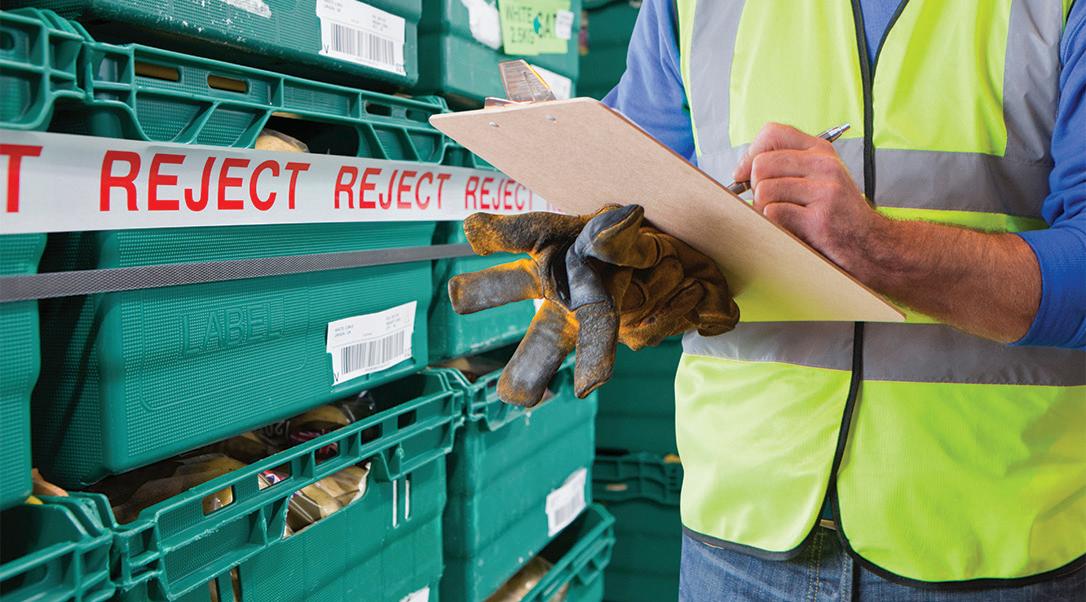
4 minute read
AFCCC
Benefits of fighting food wastage far outweighs the cost
Australian Food Cold Chain Council chairman, Mark Mitchell, writes about why food and beverage companies will benefit the most from curving food wastage.
Everyone in the food business, cold chain or not, should read the National Food Waste Strategy Feasibility Study, launched in early September by Assistant Minister for Waste Reduction and Environmental Management, the Hon Trevor Evans.
I was there (virtually) in my capacity as chair of the Australian Food Cold Chain Council (AFCCC) and I came away with renewed hope that ‘we can do it’ – the ‘it’ being the reduction of this country’s rather disappointing waste of food by at least half by 2030.
The study, commissioned by our friends at Food Innovation Australia Limited (FIAL), is massive and will underpin the work ahead by FIAL and the government-appointed Stop Food Waste Australia.
But it won’t be easy, and it will come at a cost. But the best news is that this study proves to the doubters in the food supply and distribution industry that the financial benefits significantly outweigh the financial cost.
The study says that at the national level, the benefits are significant – for every $1 invested, the economy will get $7 back, resulting in a $58 billion overall benefit over the 10 years to 2030. Every stakeholder group in the value chain will receive a net positive financial benefit.
What pleased me most from the Assistant Minister’s call to arms, was his insistence that those involved in the food supply and distribution industry will need to step up to support the recommendations made by the study to achieve the 2030 target.
As the study made clear, industry will be the greatest beneficiary from attacking food wastage. While industry will contribute most of the new investment ($1.45bn), it will also be the stakeholder group to benefit most, realising over $39bn in estimated savings through avoided spend and efficiency gains.
On top of those savings, we will have achieved what the AFCCC has always worked toward – a more efficient and collaborative industry that translates to a more just and equitable society.
Among the recommendations made by the study is a large-scale nationwide consumer campaign, drilling right down to advising householders how to store cold food and at what temperature. Why? Because of the $36.6bn cost to the Australian economy of food wasted every year, $19.3bn of it comes from households.
This means that up to $2,500 worth of food is thrown out per household every year. Almost one-third of the total of Australia’s food waste comes from the family fridge.
The food sector, from farm to retail, is where the majority of actual changes will need to be made and that includes all the players in the cold chain – the producers, the transporters, the operators of refrigeration assets, the wholesalers and the supermarkets.
Echoing the AFCCC’s plea for those in the cold chain to change their process culture, the study said that achieving the target will only be possible if industries change the way they do business, for the long term – embedding new processes and practices ranging from new and innovative technologies to simple process and behavioural changes.
It is the AFCCC’s belief that every company that handles food in refrigeration should embed quality management systems throughout their entire process. When the AFCCC meets a lack of appetite for improvement of cold chain processes, this reluctance to participate can be generally related to an inability to recognise that there is another, and bigger layer of responsibility on top of any number of refrigerated spaces, data acquisition technologies and intelligent refrigeration controls.
The food cold chain must be seen as a second layer, or a combination of the whole range of assets, used by companies to transport, store and distribute food from farm or manufacturing facilities to the consumer. Once these processes are incorporated into quality management systems, the chances of limiting food waste become increasingly higher.
The AFCCC was acknowledged at the study’s launch and thanked for its initiatives in driving world best practice agendas for Australia’s food cold chain. We are just one part of the cold chain, but we are one of the solutions to the problem.
We are here to help FIAL, Stop Food Waste Australia and the Australian cold chain industry to achieve the 2030 target, for everyone’s sake.
The National Food Waste Strategy Feasibility Study has given all of us the data and the means, and will become the food waste roadmap. All we need is for industry to step up to the food plate. As the study says, no single lever on its own, industry, or policy-led, will be sufficient to halve food waste by 2030. F










